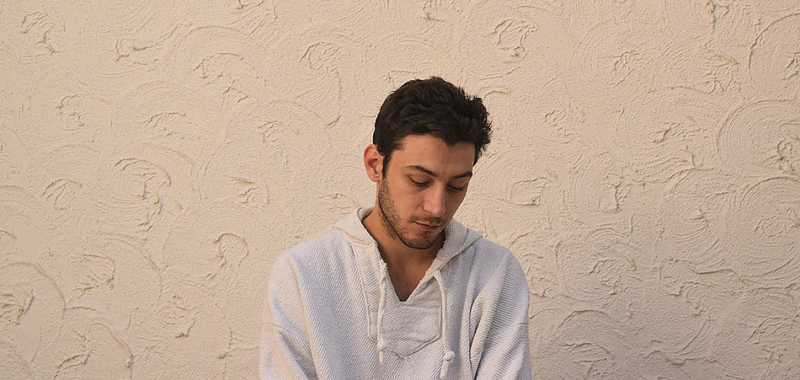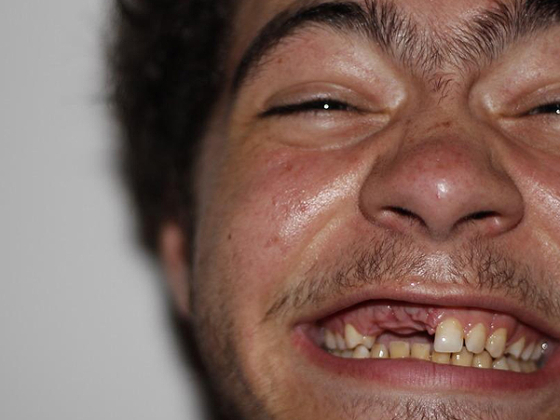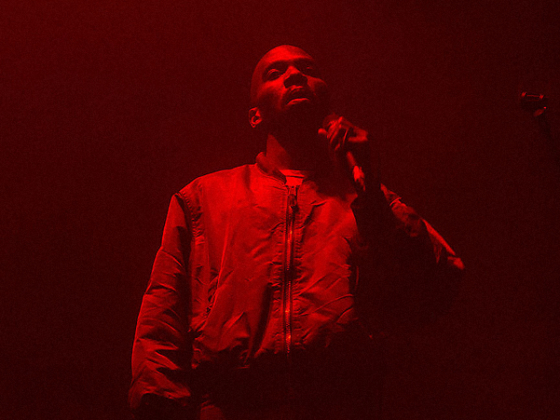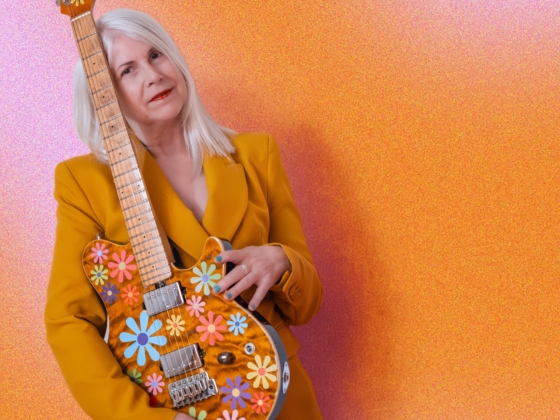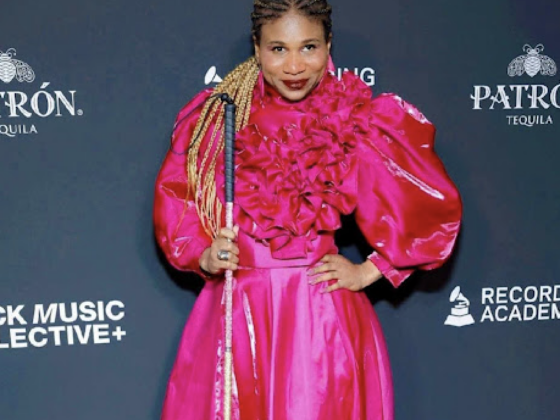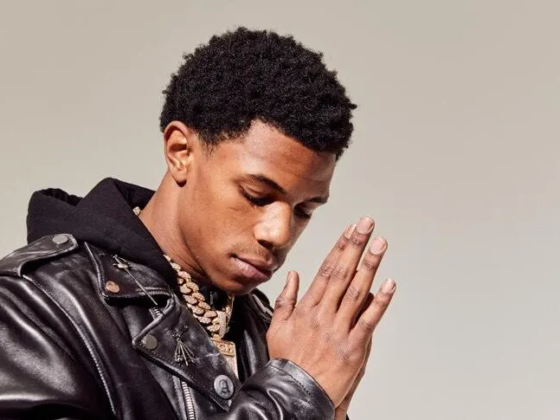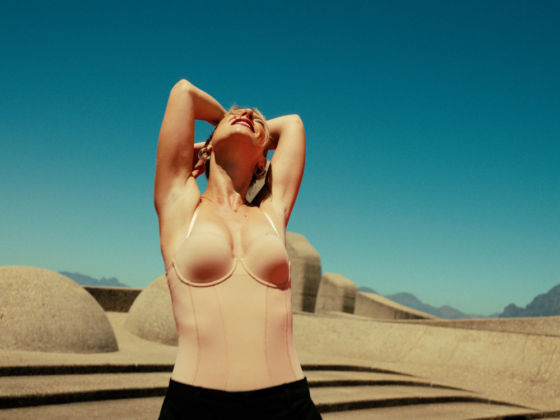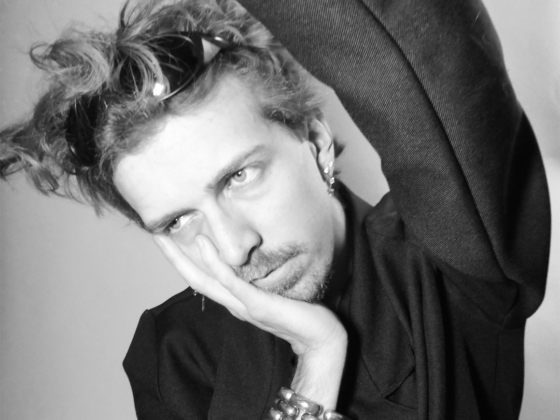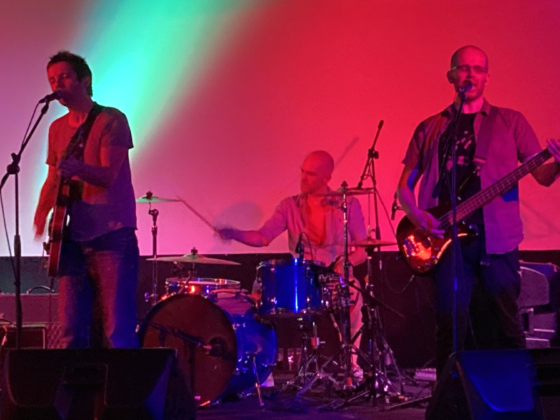Toronto based singer songwriter Chris LaRocca has put in time building, tweaking, and refining a sound he can call his own. Starting from experimenting with analog gear and eventually transitioning into a predominantly computer based workflow, he worked on developing his songwriting and production skills until they were more representative of him than the music he had been playing with others.
His debut EP, Voila, is available now. It's a bold project with songwriting and musicianship that truly elevate one another— Voila takes listeners on an 18 minute journey through introspective lyrics and sound palettes that could feel equally at place in a crowded club or blasting from headphones on a quiet walk.
I had the opportunity to speak to Chris about how the EP came together. Read the interview below.
EM: What were you doing before you started working on this project and what was the inspiration behind this EP?
Chris: Before I was working on this stuff, I was playing in a couple of bands located in Toronto. I was doing some indie stuff, just playing around with different genres and different groups… I was also getting into production at that time. I was diving into Ableton because when I was doing that guitar based indie band stuff, I kind of felt like it was out of my element, like I was leaning more towards just being a singer. I started to lightly produce in Ableton and start this project like that. The reason it came about was in that transitioning time, I was playing in these bands but on the side also developing this stuff and learning how to produce at the same time, so I was taking on a lot of work I guess. I had a batch of songs that sounded pretty good, but I knew they needed to hit a next level, so a friend of mine who plays drums when we play live connected me with my now collaborator Herag. We just kind of met and I showed him the songs I was working on— he was originally going to help me with just one or two of the songs and then we were like "let's make an EP together, why not?" We just kept it up and I ended up quitting the before mentioned bands because I was feeling like "this is what I want to do, this is what feels right." So I started doing that and took it on full time and last summer I was working like three jobs and going back and forth between work and working on these songs, so it was very secluded and busy just spending a lot of time in the studio working and developing this sound I was working on. Then we ended up here; we wrote like seven songs and produced them together. Five of them are on this EP you've heard and the other two we're just keeping around.
EM: You mentioned Ableton- I was reading that you started by experimenting with drum machines and synths- where did you end up with that on the EP?
Chris: That was a big stepping stone, too. Before getting into Ableton- I don't know if you're familiar with synths—
EM: Lay 'em on me.
Chris: I had a Microkorg and I was running it into a KP3 pad. From there, I had a Roland SP404 SX and I was using those three in conjunction with each other. It was a crazy system- I didn't really know what I was doing and I would play something on the Korg and then resample it like 20 times and get these crazy sounds and put some stupid drums over them. As cool as it is, the drums on a 404 never sound that great. I had a project when I was developing this called sextape and it was similar; it was the r&b genre, but it was the most "extra" version of that kind of music. It was very in your face r&b trappy kind of stuff, it was kind of the bridge that got me to where I am. Starting on those synths and getting familiar with that stuff really helped when I brought myself into the Ableton world because I was able to take these samples I had made and distorted on all of this hardware and take them into the box and develop them there. It was a cool transitional way to get into producing but it was definitely very limited at the time. Now that I'm in this world, I can see how limited it was.
EM: You live in Woodbridge, Ontario, right?
Chris: I live in Toronto now, but I’m from Woodbridge, it’s a suburb outside. It’s like very italian. I’m Italian as well. If you’ve ever seen Jersey Shore, that’s all you need to know about Woodbridge. There were some weird times because I was one of the handful of people who was into music and everyone else was going to the gym and playing hockey and shit so it was kind of a weird place to cut my teeth in music but it was also cool at the same time because there wasn’t much competition; you just kind of did your own thing and didn’t have to worry. I moved to Toronto recently… Now that I’m in Toronto I feel like it’s a better ecosystem for music for sure.
EM: Do you think growing up in an environment like that influenced a preference for working in seclusion?
Chris: Yeah, definitely. To take it a step further, my parents live right outside of woodbridge in a town called Kleinburg. It’s very rural and kind of forest-y. I wrote pretty much all of the music I’ve written up to this point in that house and it was very much super secluded— there’s no street traffic or anything— so you just felt really alone. It definitely makes for very sad sounding kind of things, but it was cool to do it that way. It was a benefit [living in that area] in the sense that everyone else was into different things that weren’t music and it made me want to be that much more different and carve my own lane out. It definitely helped a lot— I owe a lot of my growth to living in a very secluded area and not a city setting.
EM: Has living in the city now changed how your songwriting is flowing?
Chris: Yeah, it’s been interesting because there’s so many more people and I’ve collaborated with a lot more people. My friends run this studio that I’m at right now and I come here a lot now and it’s definitely where I need to be now. I needed to build up to this point so I could be comfortable in this situation. On the other hand of things, now that I’m in Toronto, there’s so many more people doing it and in the same field as me, so it really pushes you to carve out an even more defined lane for yourself because you see what other people are doing and you see what’s catching on and you kind of want to follow that but also not do exactly what other people are doing because you have your own ambitions. It’s cool because it keeps me grinding, I guess, you know? It keeps me saying focused on writing something really unique and pushing myself to get the best product.
EM: Do you think having to relearn the music you were making forced you to relearn how you wrote songs?
Chris: Definitely. A lot of the songs on the EP started off low tempo, very ambient, kind of had that toronto vibe to them, and at least two or three of them got totally flipped and went like 10 BPM higher after they had already been written and all of the chords changed and it really forced me to look at songwriting in a different way… Before, I’d make a song a certain way and I’d say “that’s how it’s going to be” without even thinking about anything else. I definitely think having to relearn my approach to music has shaped my songwriting because now when I write songs I’m a lot more aware of the song itself and what the song needs, not necessarily what I want.
EM: So it’s kind of forced you to be a little less selfish and make the best product?
Chris: Yeah, less selfish in the sense that— less sold on my own ideas. I used to write something as it was and I’d just work with it and if it wasn’t working I’d be like “alright, this song’s just nor working out” but now, if I write something and it isn’t working, I’ll strip the instrumental away and try something totally different and that’s really cool too because you can get something and you can fall in love with the song in a whole other way. Before, when I was just using hardware and getting into this world I would be very quick to throw away things that weren’t working right off the bat.
EM: What do you do outside of music to refresh yourself and get ideas?
Chris: I’m really inspired by film. I’m a big Harmony Korine fan; that whole alternative genre. I like watching those because I feel like it’s much more of a visual than a story line. I interpret visuals very intensely- if I see something visually that really resonates with me, I can turn that into some type of feeling or inspiration. Other than that, I also really like nature. I go into nature a lot and just lose myself there. Especially when I was living at my parents place, there’s a lot space to lose yourself and venture out and go for walks and be alone and that’s where you can really flourish in writing, for me at least.
Voila is out now. Listen to it here.
Connect with Chris LaRocca: Facebook | Soundcloud | Twitter
(interview edited for length and clarity)

